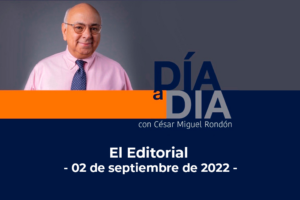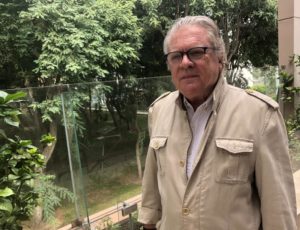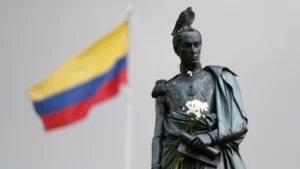Publicado en: Caracas Chronicles
Por: Francisco Toro
The president chose Henri Falcón to be his opponent for a reason.

Why is the Venezuelan government determined to go to a blatantly unfair election on April 22nd that it might, nonetheless, lose? Because it faces risks on all sides, and holding such an election is the only way it can think of to manage them.
Not holding an election at all is risky — the last vestigial thread of electoral legitimacy may elicit nothing but smirks to those of us in the opposition, but inside chavistaworld it’s still valuable enough to matter. Once you’ve calculated you’ll need a vote sooner or later, the question becomes when and how.
Waiting to hold an election is risky — the economy, already in hyperinflation, looks likely to do worse and worse, and hard as it will be to win in April it’d be even harder later. So sooner. And having a free and fair election is obviously way, way too risky — suicidal even. You’ll need to cheat. But you’ll have to calibrate the cheating so the exercise preserves the optics of a competitive election. In legitimacy terms, winning North Korean Style, with 99.99% of the vote, creates more problems than it solves.
But if you want an election that feels competitive, you’ll have to manage the risk that things will go badly off the rails and it will actually become competitive. You’ll have to manage the risk that you’ve done so much damage to the economy and your political brand is so toxic that you’ll end up losing. There’s a risk you’ll lose by a lot, by the kind of margin you can’t make up by tampering with a few dozen actas here and there, by the kind of margin that leaves you without a good escamoteo option.
I know many readers dismiss this as an impossibility, but I’m pretty sure the government doesn’t — that’s why it’s spent so much energy ensuring it has the final say over who its opponent will be.
And, to be clear, the clique around Maduro has worked overtime to give itself levers it can pull to determine that choice. From the classic tools: jailing, exiling or disqualifying candidates they find threatening to machiavellian, fourth generation stuff like maneuvering to make it politically impossible for certain people to stand against them, which they’ve done as well.
Thankfully, we don’t have to go through overly complex mental gymnastics to figure out who Maduro wants his opponent to be on February 22nd.
It’s Henri Falcón.
And how do we know? Because the president came straight out and out told us.
In a remarkable bit of saying-the-quiet-part-out-loud at a speech in Parque Central on February 2nd, Maduro told us outright that while he’d personally love to face Henry Ramos Allup in an election, “Ramos Allup doesn’t have permission to be the candidate at this time, on Saturday the 3rd of February.” Instead, he said, “I am ready and triple-ready (estoy recontralisto) to go to a battle with Henri Falcón over values and for loyalty.”
Why Henri?
Not, I think, because Falcón is some sort of chavista sleeper agent. I think it’s more that Maduro sees him as someone he could deal with. Someone he could negotiate suitable guarantees with during the extra-long, eight-month lame duck period the April Election date will create.
Someone he may hate but need not fear.
Where does this leave Venezuela? In a very dark place. The “election” that will take place in just a couple of months deserves all the scare-quotes in the world. Openly rigged, with an opposition candidate handpicked by the government and in open defiance of basic democratic values, it’s a steaming turd served up with all of Tibisay Lucena’s trademark shamelessness.
The absolute best case scenario here is that despite all the cheating Falcón wins, and a timid, gradual, slow-burn transition designed entirely around the interests of the band of hardened criminals now governing the country.
A transition that may well, for instance, leave the Constituent Assembly in place for years as a guarantor of the deposed regime’s hierarchs interest.
A transition not so much to democracy as out of the current hyperinflationary nightmare. A transition to a more economically stable kind of authoritarianism.
A miserable transition, in other words, to a detestable, debased state that is still clearly preferable to the outright catastrophe now destroying the country. By quite a lot.
















